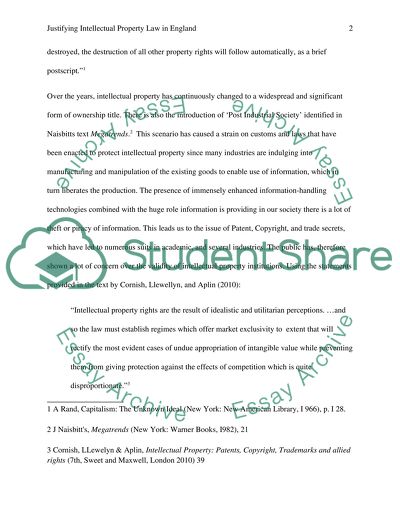Cite this document
(“Intellectual Property Law in England Essay Example | Topics and Well Written Essays - 2250 words”, n.d.)
Retrieved from https://studentshare.org/law/1477048-intellectual-property-law-in-england
Retrieved from https://studentshare.org/law/1477048-intellectual-property-law-in-england
(Intellectual Property Law in England Essay Example | Topics and Well Written Essays - 2250 Words)
https://studentshare.org/law/1477048-intellectual-property-law-in-england.
https://studentshare.org/law/1477048-intellectual-property-law-in-england.
“Intellectual Property Law in England Essay Example | Topics and Well Written Essays - 2250 Words”, n.d. https://studentshare.org/law/1477048-intellectual-property-law-in-england.


